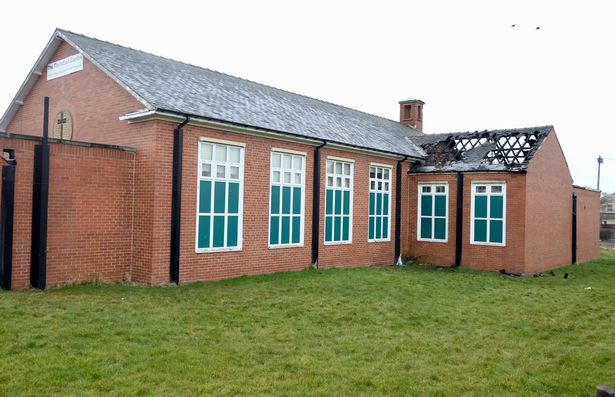When a fire breaks out, the number one priority is obviously to prevent fatalities and injuries. If that’s achieved then clearly the consequences of the fire are far less devastating. But that doesn’t mean you should underestimate its impact. Even small scale fires can hit communities hard both practically and emotionally.
If someone’s home has been damaged in a fire, that’s a dreadful experience to have to deal with. And even if it’s not their property up in flames, witnessing a fire can be a very upsetting experience. Of course, people won’t necessarily be around at the time of a fire breaking out, or even live in the immediate area, but the consequences of the disruption that follows can make their life harder. If a fire has damaged a building that people used or relied on for services it can cause a lot of upset and difficulty while things get sorted.
For example, suddenly losing access to medical facilities, or having those facilities reduced, can create significant problems. Even if the fire is quickly contained, as it was at the Royal Bolton Hospital when a fire broke out in a ward this March, it causes considerable disruption. More serious fires can completely prevent people from accessing any kind of care locally and forces them to go elsewhere. That can be difficult to do and puts a strain on resources in other areas. Fires at educational premises can impact communities significantly with parents struggling to manage their own jobs while sorting out emergency child care, and disruption to learning with students having to use facilities that are not really suitable for the purpose.
Often the problems aren’t necessarily restricted to the more obvious logistical issues either. After a fire at a care home in North Wales, residents were urgently moved to alternative accommodation. But while the new homes are acknowledged as offering good levels of care, they have mainly English-speaking staff. Yet most of the residents of the fire-damaged care home have Welsh as their first language. And that’s made it even more difficult for the elderly patients, already frightened by the experience and upset at having their community split up so suddenly, to settle.
The loss of community hubs
While buildings that are in constant or daily use are bound to feel the impact of a fire more acutely, the loss of smaller buildings that act as community hubs can be significant too. Pubs and village shops can be central meeting places; places of worship, like this church in Teesside, are used as community centres; sporting facilities and clubhouses can be a major focal point. To suddenly have them out of use or completed destroyed because of fire can make life difficult for communities. When they have only just been refurbished and re-opened, as was the case with this Southport clubhouse, it adds to the ordeal.
Communities pulling together
Communities affected by fire very often demonstrate a real strength in their ability to pull together. There are many instances where coping with these fires brings out the very best in people: a school in Hartlepool was so swamped with replacement toys and other items for their nursery after an arson attack destroyed the building, they had to start turning them away. And it’s always heart-warming to hear of communities working together like at this play centre in Guildford to get much needed facilities back up and running.
But they did what they had to do in the circumstances. No one would choose to be in the position of having to deal with the outcome of a fire.
Fire risk assessment
No matter what size of premises you own or are responsible for, make sure you have done everything possible to avoid a fire by carrying out a thorough fire risk assessment. Then review it regularly to be certain you’ve identified all possible risks and done everything you can to reduce or, even better, remove those risks. Sadly many community facilities are often targeted by arsonists so take a careful look at what you can do to secure and protect your property – you’ll find some ideas in last month’s blog. And remember that if you feel you would benefit from some expert advice, please give us a call.
